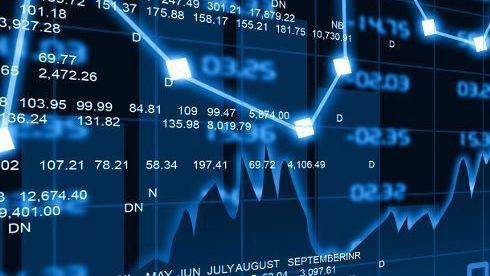

5 practical uses for Blockchain: from Airbnb to stock markets
Words: Freddie Church
Gentlemen, what is Blockchain and why should you know about it? Blockchain is some of the newest technology to be adopted by the financial world. This is a database protocol developed to underpin Bitcoin, the digital asset invented by Satoshi Nakamoto in 2008. The system is not centralised, instead peer-to-peer and transactions are done directly between users eliminating the use of costly intermediaries. Much like the non-centralisation of the currency itself, blockchain is a record keeping system where identical records of transactions are sent to everyone on the network, they are updated simultaneously and transactions only go through if enough people on the network sign off on them.
This is one of the reasons some financial giants such as Goldman Sachs are getting behind blockchain, they believe this system could significantly cut down on costs for big banks saying that the technology “can change…well everything.” The technology not only removes the need for costly middle men in financial transactions, but also provides new ways of looking at the way we keep records and the decentralisation of various markets. That is all well and good gentlemen, but what does that mean for you? Below are five ways blockchain could impact the way you live your lives.
1: The sharing economy: building trust on platforms like Airbnb
For sites like Airbnb, Blockchain is very useful. This is because it is capable of storing people’s online identities. This enables people to easily check if you are a trusted host by checking the ID number associated with your account. Unlike sites such as Facebook, it is impossible to delete your account and re-register if you get a bad reputation. This is because records on the blockchain cannot be changed. Reputation is the key for both hosts and guests on Airbnb and the fact they can’t change is useful for both parties.
Market Size: $3 – 9 billion
2: Electricity market: allowing houses to generate and sell their own electricity
This is where the idea of decentralisation comes in. Instead of having a central power provider to homes and business as we do at the moment, there is the potential for a distributed network built on blockchain’s technology. This will let people generate their own electricity, especially with the increase of self-reliant energy options such as solar, wind and high-capacity batteries, to sell on the network.
The fact that all transactions have to be signed off by enough people on the network, means that if a customer were to buy from you they could not back out of the deal because the record is there on the blockchain.
Market Size: $2.5 – 7 billion
3: Property market: cutting middle men costs by keeping records on Blockchain
This technology would enable potential buyers to quickly and cheaply check the property records to make sure they are buying from the person who really owned the house. At the moment, these checks all have to be done manually. This is a very expensive process in terms of labour costs and there is greater chance of mistakes being made which will cost you even more.
Market Size: $2 – 4 billion of savings
4: Stock markets: cutting errors and reducing costs
Given that up to 10% of trades made on the stock exchange are subject to various errors, which in turn lead to a need for manual intervention and an increase in time needed to settle trades, anything that cuts the time in the completion of trades is a good thing. It is thought that the blockchain technology could be the answer. This is because all the information stored on the blockchain is stored securely around the network and can’t change. Therefore, there should be fewer errors and need for human involvement, which should translate to huge saving of both time and money.
Market size: $11 – 12 billion of savings
5: Finance: improving anti-money laundering and “know you customer” checks.
Similarly to Airbnb and the idea of reputation, it is thought that identity data stored on the blockchain could help financial firms check new customers to see if they are a good or bad investment. Also, the fact that it is impossible to change your identity within the blockchain means that banks would be able to analyse the data to spot anyone attempting to create fraudulent histories. Therefore, targeting money laundering more directly.
Market size: $3 – 5 billion of cost savings
(Main & featured image: Shutterstock)


